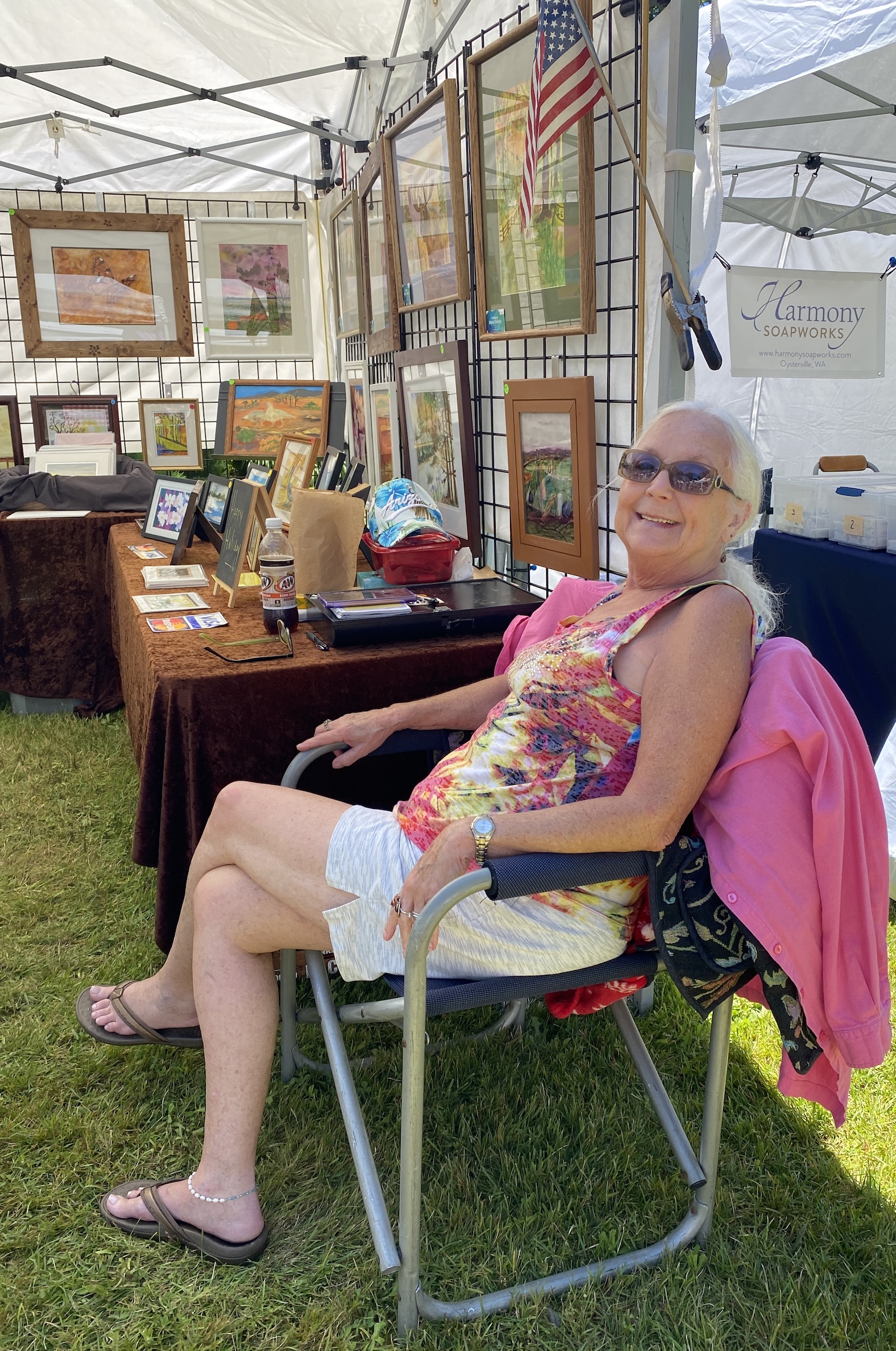TAKE 5: Barbara Bate’s five favorite song interpretations
Published 2:47 am Thursday, January 14, 2010

- Barbara Bate
Barbara Bate has lived in Ocean Park, Wash., full-time since 2002. She’s had many chances to accompany local singers – in Broadway musicals, church choirs and community songfests. “I started playing the piano by ear as a 4-year-old in Ohio,” Bate says,?”and have been gathering songs ever since, whether or not I’ve had the sheet music. I often forget the lyrics (even for Christmas carols!), but the five songs I picked here are ones that have held my attention for a long time.”
Trending
“Send in the Clowns” by Stephen Sondheim, sung by Judy Collins
I was so entranced by Judy’s soulful rendition of this song in her 1975 album “Judith” that when I had a chance to choose an Oregon license plate, I picked one that only I would recognize. “BA 1255” had the first two letters of both my names, and the numerals for the first four notes in the song – 1255 equals C D G G or “Isn’t it rich?” Sondheim is my favorite modern composer because of his ironic lyrics and complex musical phrasing. He wrote “Send in the Clowns” for Glynis Johns to sing in “A Little Night Music” almost as an afterthought, since Johns could only sing short musical phrases. Thirty years later, all sorts of singers compete to include this song in their albums and concerts. Go figure. “What a Wonderful World” by Bob Thiele and George David Weiss, sung by Louis Armstrong
I always thought of Louis Armstrong as a trumpeter who had a captive audience to tolerate his unmusical growls. But this song changed my mind. The gravelly voice came through as a wise old man’s summing up of life as worth the effort. I was surprised to find out the song wasn’t recent, but written by Bob Thiele and George David Weiss for Armstrong’s 1968 Columbia album. This past October, my daughter and son-in-law asked for a guitar version of this song for their Arizona wedding. As it was played, all I could hear was Satchmo’s last sound reaching out into space – “Oh, yeaaahhhhh!””Vincent” by Don MacLean, sung by Josh Groban
Trending
Josh Groban chose this 1971 song for his debut album in 2001. When I saw Josh singing the line, “Starry starry night,” on a Public Television special, I felt viscerally the bittersweet power of that story. Vincent Van Gogh had a phenomenal gift for painting and a terrible struggle for his sanity. Josh’s voice seemed to radiate empathy for a fellow artist, one who could not find a workable balance for his life. As a person with experience of mood swings and a commitment to mental health issues, I see this song as a small window into the lives of many creative people who live with beauty and pain. We have companions on that journey.
“Winter,” written and sung by Tori Amos
My daughter Joanna introduced me to Tori’s haunting melodies in the early 1990s, through Tori’s first album, “Little Earthquakes.” This particular song is tied to a vivid shared memory. Joanna choreographed and danced during a church service her rendition of this ballad, the story of a father’s love for his young daughter. Fifteen years after that moment, I can see Joanna moving to the lyric, “When you gonna make up your mind? When you gonna love you as much as I do?” “My Funny Valentine” written by Richard Rodgers and Lorenz Hart for the 1937 musical, “Babes in Arms”
The earliest song of the five has been interpreted by countless song stylists over the years. I list it last because of two instances in which “My Funny Valentine” was made new again. This past May, local singer Brianne Emry included it in her “Great American Songbook” concert in Ilwaco, Wash. Brianne conveyed well that mixture of insight and empathy toward a quirky someone with less than perfect features, yet just the right qualities for being loved. A second, equally rich moment came in October, when I had a chance to accompany my trumpeter-singer brother Brian in that same song prior to my daughter’s wedding. We had not done music together for nearly 20 years; it was time.








